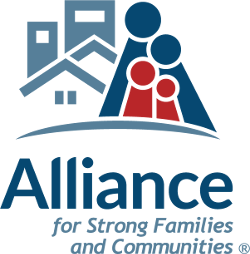In 2022, there were 368,500 children in foster care, as reported by the Administration for Children and Families (ACF). Children entering the foster system often carry invisible trauma, and not only face the potential of losing their families but also the challenge of adapting to new environments and people. Understanding and addressing each child’s individual mental health needs is critical to nurturing their well-being. The Up Center is dedicated to supporting foster families by enhancing the emotional health of children through foster youth mental health services.
Understanding the Mental Health Needs of Foster Children
Many children who enter the foster care system have experienced some form of trauma, which can manifest in different ways and often lead to lasting mental health challenges. The American Academy of Pediatrics reports that nearly 80 percent of children and adolescents in foster care have mental health needs.These challenges, if left unaddressed, can adversely impact a child’s development and daily life, leading to struggles in school, difficulty forming relationships, and self-esteem issues. Common mental health issues include:
-
- Trauma and PTSD: Due to experiences of neglect, abuse, or sudden family separation, many foster children experience post-traumatic stress disorder (PTSD) or trauma-related symptoms. This trauma can make it difficult for them to feel safe or trust adults, even in stable environments.
-
- Anxiety: The uncertainty of foster care placements can fuel anxiety. For some, fear of the future or anxiety about fitting into a new home affects their ability to focus and engage socially.
-
- Attachment Issues: When children are removed from their families, they may develop attachment issues that make it challenging to form healthy bonds with new caregivers, impacting their ability to feel loved, valued, or secure.
-
- Depression: Foster children may experience feelings of loss and loneliness, leading to depression. This sadness can be particularly profound if they’ve been separated from siblings, have experienced multiple placements, or lack a sense of permanency.
The Role of Foster Parents in Supporting Emotional Well-being
Foster parents play a pivotal role in supporting the emotional well-being of their foster children. Providing a safe, stable, and nurturing environment lays the groundwork for healing and growth. Patience is essential, as children may take time to adjust and feel secure. Empathy helps foster parents connect with children, allowing them to understand and validate their feelings. Understanding a foster child’s background and emotional state is crucial for creating effective support plans. Foster parents who embody these traits can positively influence their foster child’s mental health.
Practical Tips for Promoting Mental Health at Home
Creating a supportive home environment is key to promoting mental health in foster children. Here are some practical tips for foster parents to enhance mental health at home:
-
- Establish Routines: Consistency provides a sense of security and predictability, and comfort. Creating a schedule for meals, homework, and bedtime can help children develop structure.
-
- Open Communication: Encourage children to express their emotions openly. Listening without judgment builds trust and helps children feel understood and valued.
-
- Create a Safe Space: Ensure your home environment is welcoming and inclusive. Small actions, like personalizing their room or providing familiar toys, can help foster children feel more at home.
-
- Engage in Play and Activities: Use playtime to build trust and relationships. Participate in activities and hobbies the child enjoys, which can also serve as an avenue for expressing emotions and working through challenges.
-
- Positive Reinforcement: Recognize and celebrate positive behaviors to boost self-esteem and encourage a positive outlook.
-
- Mindfulness Practices: Introduce relaxation techniques such as deep breathing or meditational exercises to help children manage stress and anxiety.
- Seek Help When Needed: Don’t hesitate to reach out to mental health professionals for counseling for foster care youth. Therapists can offer specialized strategies and interventions that cater to the child’s unique mental health needs.
Foster Care Mental Health Services
Therapy and counseling for foster care youth provide an outlet for them to process their emotions in a safe, structured environment. The Up Center offers services like trauma-informed therapy, family therapy, and individual foster care counseling tailored to meet the specific needs of foster children. Outpatient Therapy techniques such as Cognitive Behavioral Therapy (CBT) and play and art therapy are often used to engage children in a manner suited to their age and emotional maturity, helping them work through their challenges.
Mental Health and The Up Center
Early intervention in mental health issues has been shown to significantly improve long-term outcomes for foster children, reducing the likelihood of issues persisting into adulthood. In 2022, The Up Center provided counseling services to more than 800 clients and 82 percent of clients who were eligible for assessment showed stability or improvement in functioning after receiving personalized care and counseling.
If you are a foster parent, or considering becoming one, reach out to The Up Center for guidance and support in navigating the complexities of mental health in foster care. Together, we can ensure that every child has the opportunity to thrive in a loving and supportive environment.
Common Important Questions
1. Most common mental health challenges for children in foster care
Children in foster care frequently contend with PTSD or trauma-related symptoms, anxiety, depression, attachment issues, and sometimes substance use disorders, which often stem from neglect, abuse, or repeated placements.
2. Key signs of trauma in a foster child
Common indicators include heightened anxiety or fear, withdrawal or aggression, inconsistent school performance, difficulty trusting adults, attachment struggles, depressive symptoms, and emotional dysregulation — often reflected in behavior changes, nightmares, or regression.
3. Difference between “acting out” and a trauma response
“Acting out” implies willful misbehavior, but trauma responses are adaptive coping attempts. Behavior like aggression or defiance may stem from underlying fear or emotional dysregulation—not from deliberate misconduct.
4. How to create a trauma‑informed environment at home
Foster a safe, predictable routine and build trust through consistency. Communicate openly with empathy, validate feelings, and encourage connection. Recognize that most children in foster care have experienced trauma and tailor responses accordingly.
5. How to respond during an emotional meltdown or tantrum
Stay calm and empathetic rather than punitive. Offer a safe space, help regulate their emotions gently, validate their feelings (“I see you’re upset”), and once calm, use simple coping strategies or soothing techniques. Avoid shaming or escalating the situation.
6. Best ways to build trust with a child hurt by adults
Consistently follow through on promises. Be patient, empathetic, and honor their pace. Use routine to create stability, validate emotions, and use open, age-appropriate conversations to build connection over time.
7. How to find a therapist specializing in foster care and trauma
The Up Center provides trauma-informed, evidence-based outpatient counseling for children and families, including therapies like TF‑CBT, EMDR, play and art therapy tailored to trauma and foster care contexts. They also recommend scheduling early intake and working with providers experienced in foster care and trauma to avoid waitlist delays.














